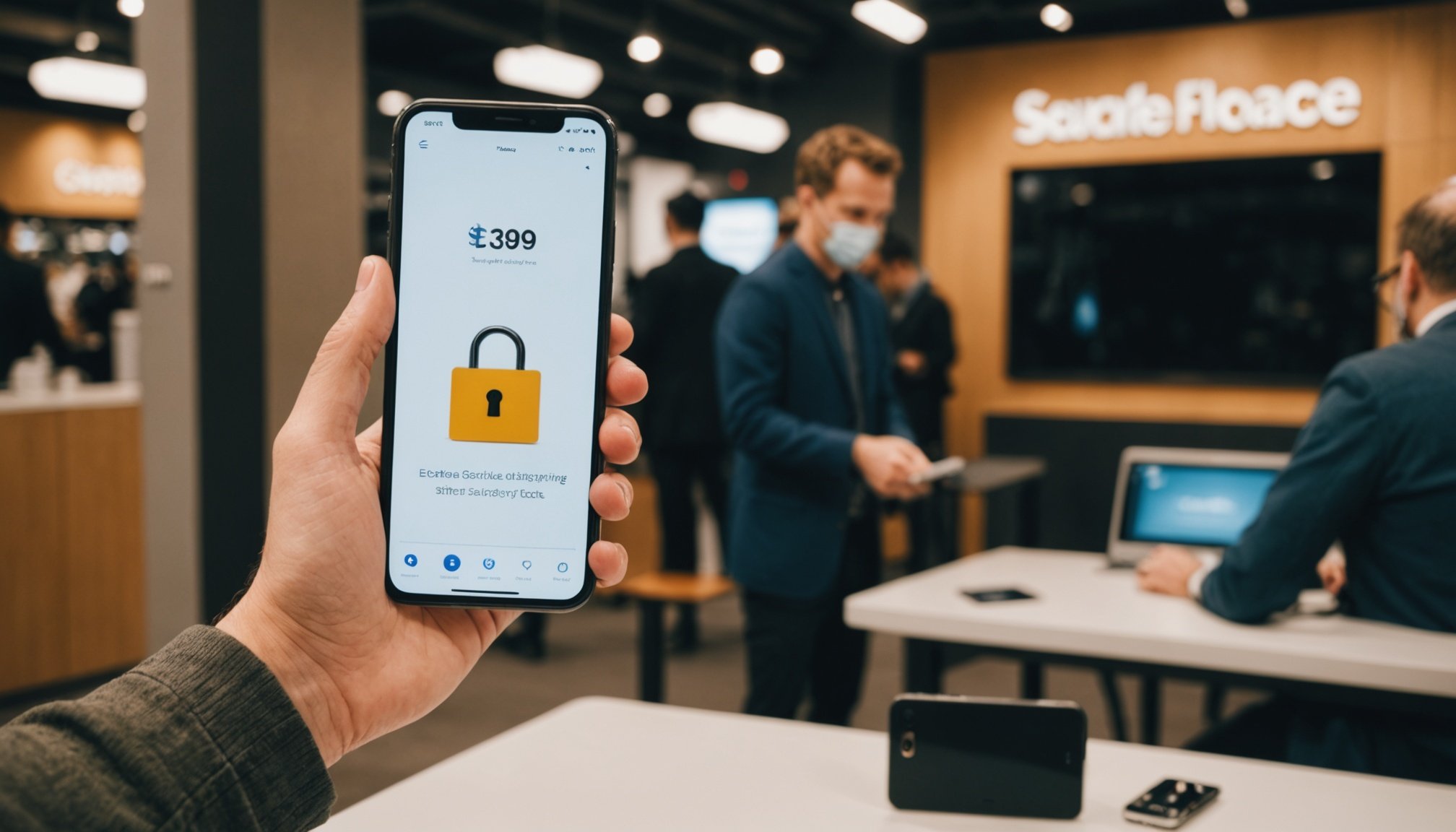Understanding the Risks of Online Shopping
Online shopping has transformed our purchasing habits but also introduces various online shopping risks. Understanding common threats can help mitigate potential dangers.
When shopping online, one of the significant concerns is phishing attacks, where hackers trick users into providing sensitive information by pretending to be trustworthy entities. Carefully examinate emails and websites to avoid falling victim to such scams. Another prevalent issue is data breaches, where unauthorized access to personal data can lead to identity theft and financial losses.
Have you seen this : Transform Your Pet Care Routine: The Comprehensive Smart Home Manual with Smartphone Connectivity
Additionally, smartphone threats cannot be ignored. Malware specifically targeting smartphones can compromise both personal and financial information security. This includes apps that might seem harmless but can be designed to steal your data. Regularly monitor your device for any suspicious activities and keep security software up to date.
It’s crucial to stay informed of these risks to protect your financial security and personal details while shopping online. By recognizing these threats and understanding the importance of safeguarding your information, you can enjoy a safer online shopping experience. Always approach online shopping with vigilance, ensuring your data remains secure against these prevalent threats.
Additional reading : Elevate Your Smartphone to a Smart Garden Control Center: An In-Depth, Step-by-Step Guide
Best Practices for Smartphone Security During Online Shopping
Using strong, unique passwords for your online shopping accounts is crucial in keeping your smartphone secure. This measure significantly reduces the risk of unauthorized access and helps safeguard your personal information. Incorporating biometrics or two-factor authentication adds an extra layer of protection, making it more challenging for intruders to breach your accounts.
Regularly updating your smartphone’s operating systems and applications is essential, as developers often release security patches to fix vulnerabilities. These updates play a vital role in protecting your information from malware or exploits that target outdated software. Neglecting updates might expose your device to unnecessary risks that could compromise your data privacy.
For safe online purchases, always ensure your transactions are conducted over secure connections. A secure connection can be confirmed by checking for a padlock symbol in the URL bar of your browser, alongside an “https://” prefix. This indicates that the data exchanged between your device and the website is encrypted, thereby safeguarding your financial security.
Additionally, enabling options such as remote wipe capabilities can help secure your information if your device is lost or stolen. These practices ensure that even in worst-case scenarios, your sensitive information remains protected. By following these guidelines, you enhance your smartphone’s security during online shopping.
Tools and Apps to Enhance Online Shopping Safety
Enhancing online shopping safety is crucial, and security apps play a massive role in achieving this. They serve as digital watchdogs, detecting malicious activity and providing real-time alerts to safeguard personal information. Certain apps, such as antivirus programs and password managers, offer comprehensive privacy protection, ensuring robust defence against threats.
Recommended Security Applications
Popular security applications include Norton and Bitdefender, known for their vigilant protection against malware. These apps continuously scan for threats and provide updates to keep your defenses current. Enhancing your smartphone’s privacy protection with such apps is an effective strategy against data breaches.
Best Shopping Platforms with Built-in Security Features
Platforms like Amazon and eBay prioritize user security, employing encrypted payment systems and fraud detection tools. These shopping safety tools help maintain a secure environment for transactions, ensuring your financial security is less vulnerable to breaches.
Virtual Private Networks (VPN) for Secure Browsing
Using a VPN for online purchases, especially on public networks, is a smart privacy protection measure. VPNs encrypt internet traffic, masking your location and personal data. This added layer of security ensures that your sensitive information remains concealed from prying eyes, offering safer browsing experiences.
Identifying Red Flags While Shopping Online
Shopping in the digital world requires vigilance to avoid online shopping scams. Recognizing legitimate e-commerce sites is the first step. These sites often feature clear return policies, contact information, and display trust seals like BBB or Norton. Additionally, look for secure URLs beginning with “https://” to ensure data encryption.
Several red flags indicate potential fraudulent websites. Be cautious of sites lacking transparency or professional design, those with excessive pop-ups, or those offering deals that seem unrealistically good. Check spelling and grammatical errors too—a mark of poorly managed sites. Always cross-check website URLs as scammers often set up lookalike sites to deceive unwary shoppers.
Shopping alerts can be valuable tools. Many browsers or security plugins can flag suspicious websites, offering shopping alerts to users. These alerts are invaluable in identifying dodgy sites early.
Relying on consumer reviews and ratings is another important method for gauging site credibility. Be wary of sites with all perfect scores or reviews lacking substantial detail. Real reviews, even if critical, often provide insights into the purchasing process. Revisiting user feedback can help you discern between genuine platforms and those tainted with deceitful practices.
Resources for Staying Informed About Online Shopping Security
In today’s rapidly evolving digital landscape, staying updated on security news is crucial for maintaining safe shopping habits. Accessing websites dedicated to online shopping education offers a wealth of information on the latest vulnerabilities and threats. Websites like Cybersecurity and Infrastructure Security Agency (CISA) regularly update consumers with alerts and practical guidelines on safeguarding personal information.
Recognizing the benefits of consumer protection, organisations like the Federal Trade Commission (FTC) provide extensive resources on recognizing and avoiding online shopping scams. These resources offer valuable insights into defensive strategies and legal protections available to consumers facing fraudulent activity.
Participating in community resources or forums also bolsters your online safety knowledge. Platforms such as Reddit and cybersecurity-focused groups on Facebook allow users to share real-world experiences and advice. Engaging with these forums not only helps in learning from shared incidents but also develops a broader understanding of prevalent security issues and solutions.
By immersing oneself in these educational and communal resources, consumers arm themselves with invaluable knowledge that supports vigilant and secure online shopping practices. These consumer protection portals are vital in staying informed and proactive in the ever-changing arena of online purchasing security.











